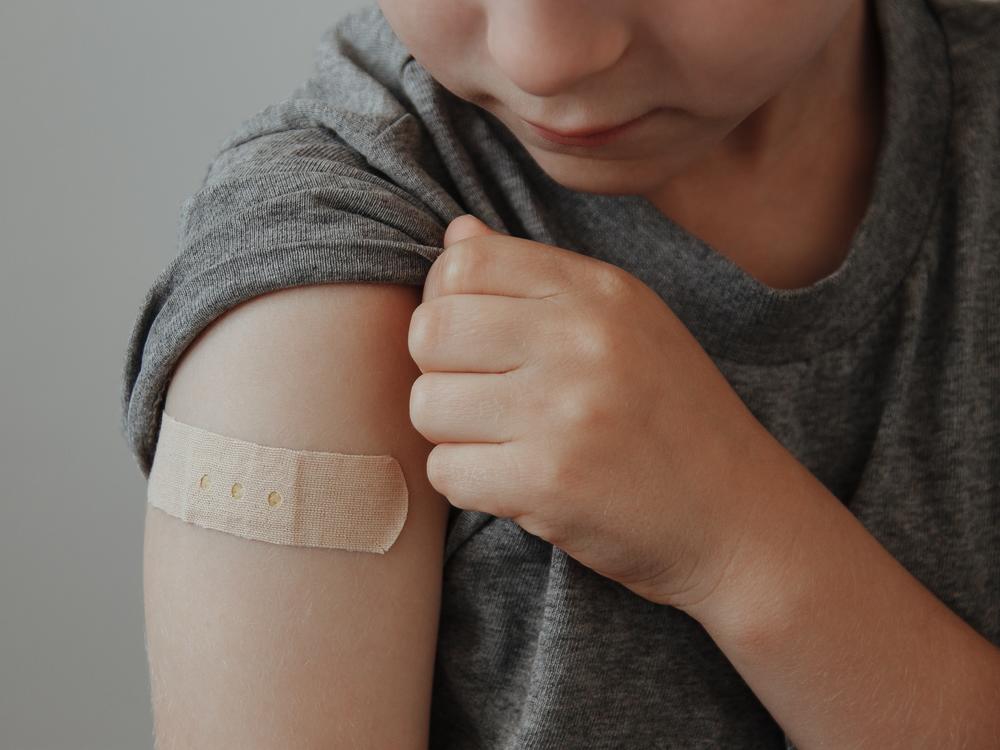Section Branding
Header Content
What happens when a vaccine skeptic leads health policy? Ask Florida
Primary Content
President-elect Trump says he's going to let Robert F. Kennedy Jr. "go wild on health." That has many pediatricians nervous, because of RFK Jr.'s anti-vaccine rhetoric. When another vaccine skeptic, Joseph Ladapo, became surgeon general in Florida, some doctors there say vaccine hesitancy got worse.
"It's because people in power, like our surgeon general, as an example, are pushing this anti-vax message," says Dr. Jeffrey Goldhagen, a professor of pediatrics at the University of Florida College of Medicine and president of the International Society for Social Pediatrics and Child Health.
Vaccine hesitancy has been growing in Florida. When Ladapo was appointed in September of 2021, the routine childhood vaccination rate for kindergartners was 93.3%. It has now dropped to 90.6%. That's the lowest rate in more than a decade — and it's well below the threshold needed for herd immunity against highly contagious diseases like measles.
Dr. Lisa Gwynn, a pediatrician in Miami-Dade county, says she spends a lot of her time countering vaccine misinformation. "Probably 50% of our job now in pediatrics is explaining to parents the importance of vaccinating their children," she says.
Earlier this year, Gwynn saw the consequences of not getting routine childhood vaccinations first hand.
"We just had a measles outbreak right around the corner of the elementary school that my daughter went to," in nearby Broward County, she says. "There were five kids who contracted measles and they were not immunized."
When a measles outbreak occurs, the Centers for Disease Control and Prevention advises parents to keep unvaccinated children at home after exposure, to stop the disease from spreading. But Florida Surgeon General Joseph Ladapo's advice was quite different: He told parents of unvaccinated children that it was up to them to decide whether to send their children to school or keep them home.
That guidance "violated every, every premise of how measles should be addressed," says Goldhagen.
Vaccine hesitancy was rising in Florida long before Ladapo became surgeon general. In the two years before he took office, the vaccination rate had been dropping by a fraction of a percentage point each year. After his appointment, the decrease accelerated — dropping nearly 3% in just two years.
Goldhagen says battling vaccine hesitancy has gotten harder. "It accelerated during COVID. It accelerated post-COVID and it particularly accelerated because of the anti-vaccine stance by this surgeon general," he says.
In January 2022, Ladapo advised against vaccinating children against COVID, contradicting federal public health leaders who recommend all children get the shots. The Florida chapter of the American Academy of Pediatrics called the move irresponsible.
That same year, he appeared on a podcast hosted by Dr. Sherri Tenpenny, a prominent anti-vaccine doctor in Ohio. When she made false claims that vaccines cause autism, Ladapo did not correct her, nor did he correct her claims that no vaccine has been proven safe or effective.
In January of this year, Ladapo called for a halt to the use of mRNA COVID-19 vaccines for adults as well as children, citing unproven health risks that have been refuted.
Ladapo has become a frequent target of critics who say his stances on vaccines go against established science. Last year, the CDC and FDA sent Ladapo a letter reprimanding him for spreading misinformation about COVID vaccines and fueling vaccine hesitancy. Now, Ladapo has been mentioned as a possible candidate to lead the Department of Health and Human Services. So has RFK Jr.
Pediatricians say anti-vaccine attitudes that grew during the pandemic, specifically around the COVID vaccines, are now impacting all childhood vaccinations.
And it's not just in Florida.
Routine childhood vaccination rates have been dropping in the majority of U.S. states, while vaccine exemptions are up.
Gwynn worries those rates will drop further if the people in charge of national health policy doubt the safety and efficacy of vaccines. "I'm very concerned, as are all pediatricians across the nation," she says. "One of our primary roles as pediatricians is keeping children safe. And the most effective way to keep children safe from preventable communicable diseases is vaccination."
Dr. Rana Alissa is the president of the Florida Chapter of the American Academy of Pediatrics. She says vaccine hesitancy is complex and can't be blamed on one person. But she says the politicization of vaccines that happened during the pandemic, when people's attitudes about COVID vaccines became a sort of litmus test for their political leanings, hasn't helped.
Vaccines are one the most effective tools health care workers have to prevent disease, she says. "The vaccines we have in the U.S. prevent 21 deadly diseases ."
The success of vaccines means many people no longer remember how serious some diseases can be. Alissa says that can lead some people to make flawed risk calculations about the value of getting a vaccine.
"People think that getting the disease is easier than or is safer than getting the vaccine. I have no idea where this came from," Alissa says.
The U.S. is already seeing an uptick in some vaccine-preventable childhood diseases, says Dr. Adam Ratner, a pediatric infectious disease specialist in New York City and author of a forthcoming book about the resurgence of measles and the growing anti-vaccine movement.
Measles outbreaks and cases of chickenpox and pneumococcal disease are on the rise in the U.S., he notes.
"When we see children in the hospital with complications of these things that we can prevent or at least decrease the risk of by using vaccines, it's very frustrating," he says.
As vaccine hesitancy continues to spread, Alissa and other pediatricians worry that other devastating childhood diseases like polio could re-emerge.
Alissa says many people have lost trust in public health science, and the country needs leaders who will help get that trust back.
This story was edited by Jane Greenhalgh

